Search
Search Results
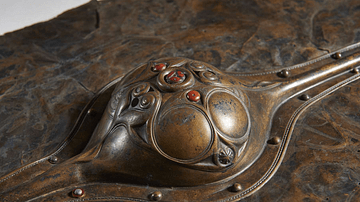
Article
Celtic Bronze Shields
The ancient Celts produced magnificent bronze shields in Iron Age Britain which were most likely for ceremonial purposes and display. Several fine examples have miraculously survived as evidence of the imagination, skill, and artistry of...
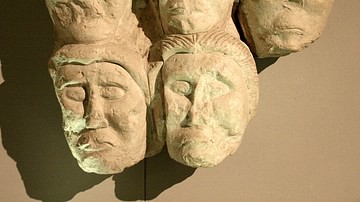
Article
Sacred Sites & Rituals in the Ancient Celtic Religion
In the religion of the ancient Celts who lived in Iron Age Europe from 700 BCE to 400 CE, certain natural sites like springs, river sources, and groves were held as sacred. These places, as well as some urban sites, often had purpose-built...
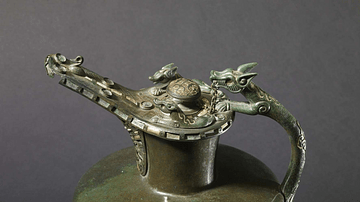
Article
Celtic Feasts
Feasts were an important part of ancient Celtic culture which marked important dates in the calendar and community successes. They were, too, an opportunity to display social status and, of course, eat and drink aplenty. Drunkenness and brawling...
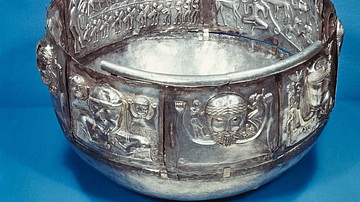
Definition
Gundestrup Cauldron
The Gundestrup Cauldron is a gilded silver bowl found in Gundestrup in Denmark in 1891 CE. It was likely made in the Balkans, perhaps in the 1st century BCE, and shows a clear influence from Celtic art and mythology, even if other motifs...
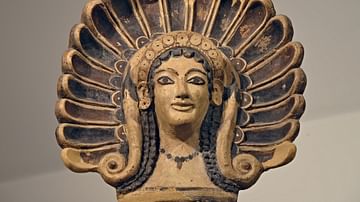
Definition
Etruscan Pottery
Etruscan pottery, produced over five centuries, was nothing if not varied. Indigenous wares such as the glossy black bucchero were made alongside red- and black-figure pottery imitating, yet modifying those produced in the Greek world. Geometric...
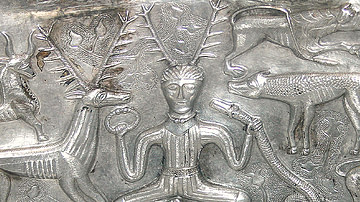
Definition
Cernunnos
Cernunnos was an ancient Celtic god who represented nature, flora and fauna, and fertility. He is frequently depicted in Celtic art wearing stag antlers or horns and usually a torc around his neck. Few details are known about him but celebrated...
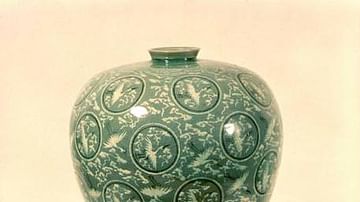
Definition
Korean Pottery
The pottery of ancient Korea stretches back to prehistory when simple brown wares were made and decorated with geometrical incisions. Potters would benefit from the ideas and techniques of their Chinese counterparts and go on to produce their...
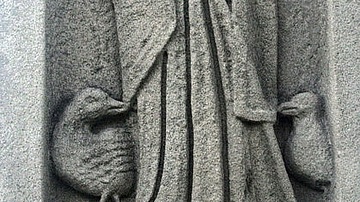
Definition
Hilda of Whitby
Hilda of Whitby (also known as Saint Hilda of Whitby, l. 614-680 CE) was the founder and abbess of the monastery at Whitby, Kingdom of Northumbria, Britain. She was a Northumbrian princess who converted to Christianity with the rest of the...
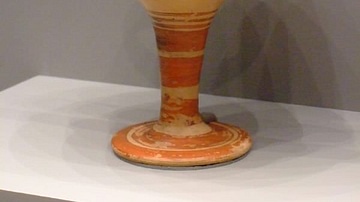
Article
Mycenaean Pottery
The pottery of the Mycenaean civilization (1550-1050 BCE), although heavily influenced by the earlier Minoans based on Crete, nevertheless, added new pottery shapes to the existing range and achieved its own distinctive decorative style which...

Definition
Black Figure Pottery
Black figure pottery is a type of Greek pottery named after the colour of the scenes painted on vessels. It was first produced in Corinth c. 700 BCE and then adopted by pottery painters in Attica, where it would become the dominant decorative...